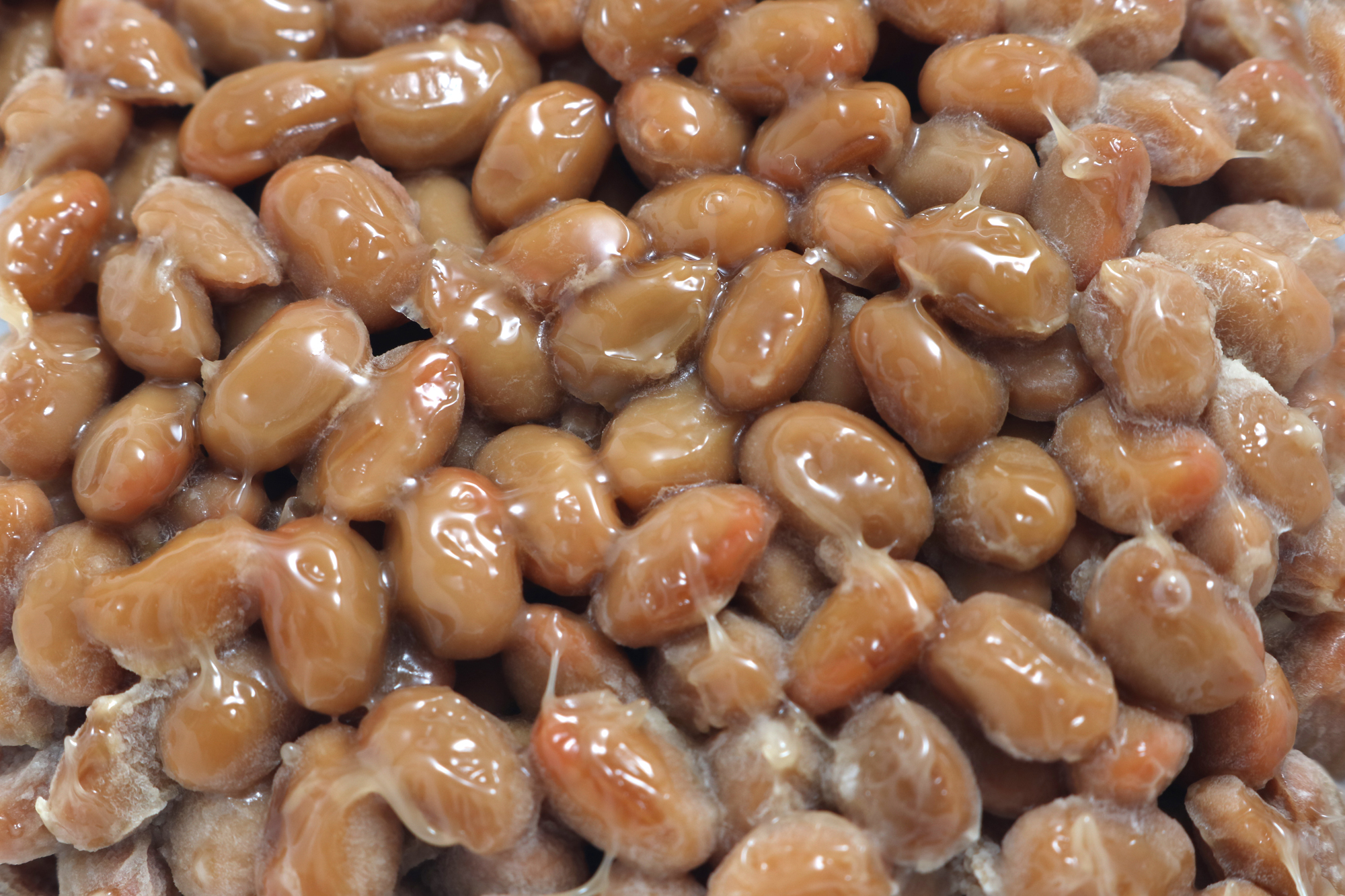Remember when you would step out to the スーパー (sūpā, supermarket) just to pick up some 卵 (tamago, eggs), 牛乳 (gyūnyū, milk) or 砂糖 (satō, sugar)? Well, these days you're just as likely to pick up スーパーフード (sūpāfūdo, superfoods) from the スーパー as you are your daily necessities.
The shopping lists of health-conscious consumers are likely to include products such as ココナッツオイル (kokonattsu oiru, coconut oil), チアシード (chia shīdo, chia seeds) and アサイー (asaī, acai), but health-conscious Japanese are likely to stick with one staple that has done them well for centuries: 納豆 (nattō, fermented soybeans).
One of the country's most notable 健康食品 (kenkō shokuhin, health food products), 納豆 is made from 大豆 (daizu, soybeans) fermented with 枯草菌 (kosōkin, bacillus subtilis), a bacteria widely recognized as a probiotic. It's known to have its roots in the area of Mito, Ibaraki Prefecture, a region famous for わら納豆 (wara nattō), which is 納豆 wrapped in rice husks.


















With your current subscription plan you can comment on stories. However, before writing your first comment, please create a display name in the Profile section of your subscriber account page.